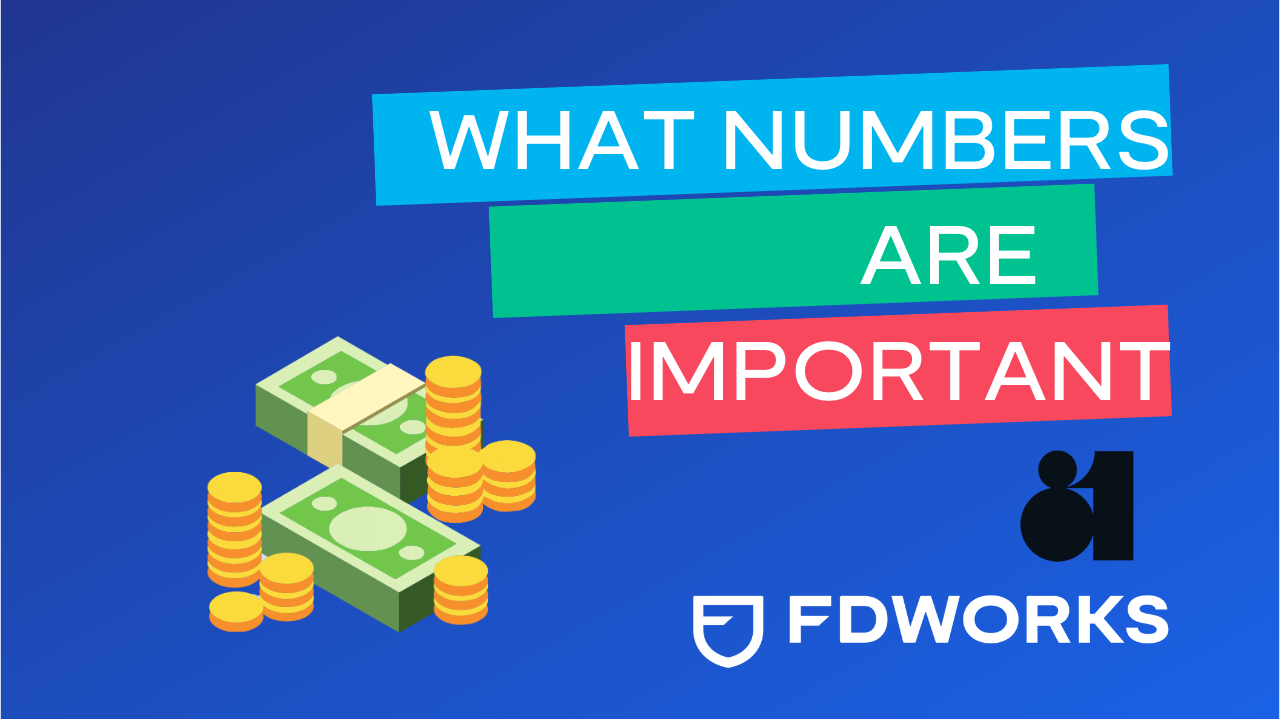
There are plenty of exciting elements to running your own business – or any business! Many enjoy the freedom of being their own boss and delegating their own tasks (and where they work from). The thought of being paid to do what you love is an exciting and encouraging commodity.
Knowing what numbers are important when it comes to managing the finances of your business can be daunting, to say the least! We’re here to help with this handy video, to give you a quick rundown of what you should be tracking – dependant on your business goals.
Before we begin, it’s important to understand what your business goals are. The information you will need will change depending on these goals. For example, if you are in a growth stage, you’re going to be tracking different numbers to if you are simply in ‘survival mode’. This video will cover the ‘must have’ numbers to start with.
Arguably this is the number that most businesses will focus on, yet many will only look at how they did the month previously. It’s super important to have an overview of your turnover as a whole. Keeping an eye on the trends can show you quickly whether your numbers are up or down. If you can determine why your sales are fluctuating, you can implement strategies to ensure those numbers stay on an upwards incline. Without this, you may not even realise your revenue travelling on a downward slope.
These are the costs that directly relate to being able to provide your business’s goods and/or services. Having an account of these costs helps you also understand your gross profit. Make sure you routinely assess this number as it is one you have a lot of control over! How can you add value to your business? And how can you ensure that you get the most value out of these costs?
These are the expenses that are for running the business. You need to spend money to earn money, so it makes sense to ensure that you are keeping an accurate record of these expenses. Operating expenses include things such as wages and administration costs. When costs need to be reduced, this is the first place you should look. If you have an accurate record of what you’re spending to operate your business, you can evaluate whether you really need that subscription service anymore, or even if there are licenses you can afford to boot if you no longer need them.
This is a sneaky one! Corporation Tax is the tax you pay on any profits you make from successfully doing business, selling assets or investments. You won’t get a bill for corp tax but you will be expected to pay by your deadline (which is usually 9 months after your year-end/accounting period). There are certain things you must do to work out how much corporation tax you owe and must pay to HMRC. Corp tax is currently 19% of profits within a financial year…however, this goes up on 1st April 2023 to 25% for companies that make over £250,000. Posting a provision based on monthly profit will help take away that end-of-year scare. Top Tip: This is something that we do monthly for our clients here at FD Works, helping to reduce any big shocks at the end of the year!
This is the main figure that it all comes down to…how much money did your business make or lose? Obviously, a big one to keep track of! In other words, operating profit is the total income a company generates after paying off all operating expenses. The operating profit figure excludes gains or losses from interest, taxes and investments. This number is a highly effective way to distinguish the health of your business.
An extra number to keep an eye on is cash flow. Cashflow is the amount of money being transferred in and out of the business. Generally, if your outgoings are consistently greater than your ingoings then your business isn’t sustainable and you need to look at what can be done to solve this. However, it’s not quite that simple! You may spend £10k on sales in order to make £100k. Yet, if that money isn’t paid on time to you, you can’t reinvest another £10k into your next batch of sales. If you’ve been keeping track of the other metrics mentioned previously, you have the tools in place to troubleshoot your issue and react accordingly:
…And there you have it! In this article, we have broken down the metrics that we think are important to keep track of and understand. Now, this isn’t a comprehensive list, so make sure you get in touch with us or check out our website if you are ready to take control of your finances and work with our incredible team. We really believe that numbers reveal the opportunities for shaping any business.
FD Works are your best friend in finance - we're a new team of highly experienced management accountants who collaborate with their clients.
You need to load content from reCAPTCHA to submit the form. Please note that doing so will share data with third-party providers.
More InformationNotifications